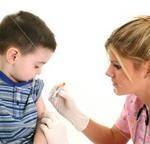Last Updated on October 30, 2024 by Bryan Dastan
Last year, there was great hysteria regarding swine flu. People were scrambling for information regarding the symptoms, causes, number of deaths, and vaccination for swine flu. With news reports and health magazines flooded with topics relating to swine flu, people were getting more cautious about the disease. There was more awareness on the internet with e-magazines and bloggers discussing the topic. Over a period of time the doctors came across swine flu in pregnant women. More research was being done on this topic to ensure that the right information is being passed on to the patients and people who would like to take precautions.
Pregnancy and immune system:
During pregnancy a woman’s immune system tends to become weak. The fetus is a foreign body that might be rejected by the mother’s high immunity levels. Hence the immune system is naturally suppressed. Due to these changes in the body pregnant women is more susceptible to develop infections like the seasonal flu and swine flu. The severity of the disease is also more in pregnant women. For example, they are more likely to suffer from pneumonia due to the onset of flu. Women who are pregnant should be extra cautious if they are suffering from health conditions like asthma.
Debate on the topic:
The United States Centers for Disease Control and Prevention (CDC) conducted a study between April 2009 and June 2009 to determine the toll of women affected by the H1N1 virus during pregnancy. Out of 45 patients in the trial 6 of them were pregnant women. All the women had to be treated for pneumonia due to swine flu and had to be put on the ventilator.
Dr. Denise Jamieson of the U.S. Centers for Disease Control and Prevention stated that though 6 % of pregnant women were affected by the disease, pregnant women represent only 1% of the population and that their death figures were over represented. She recommended that women who suspect they have influenza should get checked by their doctors to find out if they have been infected by the H1N1 virus. According to her women should be aware of the hazards of the disease but need not change the way they live.
However Jamieson also pointed out the fact that though the reports of the studies suggest high incidence of swine flu in pregnant women, there is no concrete evidence that they are more susceptible to influenza. She further explains that when they have influenza they are at a high risk of having severe diseases.
Patrick O’Brien, consultant obstetrician at University College Hospital, London, said: “it is important not to be alarmist. The numbers affected are very small. Approximately 18 per cent of all pregnant women have seasonal flu, yet it doesn’t put them at significant risk.”



